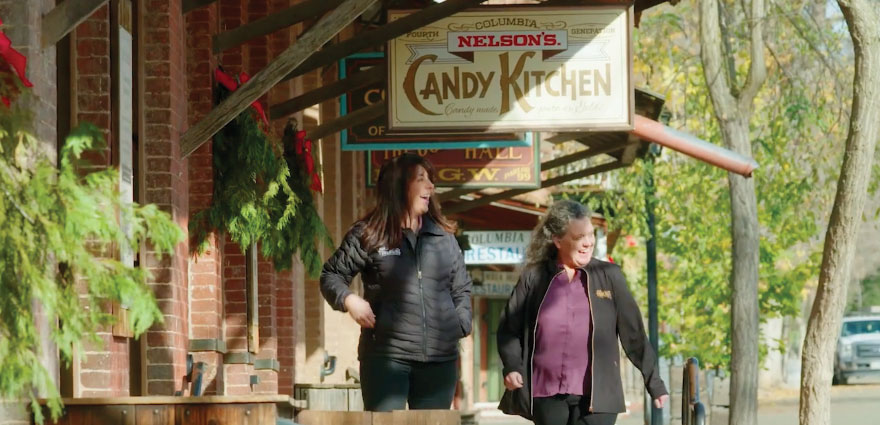Despite or even because that work, Bryant said even an entry-level hospitality job can provide one of the most rewarding experiences possible in an economy that often dismisses such work.
“Being in service to others is a special thing that not everyone gets to experience and not everyone can do,” Bryant said. “Service to others is one of the biggest honors you can take with you in your life. Because it gives you these moments when you know you left your mark on somebody’s life.”
Bryant’s own hospitality career started at the ice cream stand of the Yosemite Lodge pool and continued around the Yosemite Valley. She returned to the region after college and worked as a front desk manager at a Mammoth Lakes hotel before becoming marketing manager of the popular destination tourism board.
The last three years have certainly been challenging for the hundreds of people who worked in hospitality in Mammoth Lakes. Many left the city after visitors disappeared and businesses shut down. Those who stayed struggled to even buy food, prompting Mammoth Tourism to open its own food bank and help impacted hospitality industry workers. Bryant said her day-to-day work flipped from encouraging people to come to Mammoth Lakes to warning visitors to stay away, including the hundreds of people calling everyday to ask whether ski resorts and hotels were open there.
The pandemic’s impacts continue in Mammoth Lakes as businesses struggle to hire enough workers to meet the demand of returning visitors, Bryant said.
“As we have come out of things and people did really want to enjoy nature, it was about the influx of visitors and helping them understand nature but with a lot smaller workforce - a lot less locals, a lot less employees to bridge the gap of information,” she said. “There are longer wait times for visitors at restaurants now because there are less servers. So you may walk into a restaurant and see open tables, but that doesn’t mean they can seat you right away.”
Bryant blamed the ongoing worker shortage on what she said was a general underappreciation in the United States for front-line hospitality industry work – the waiters and desk clerks and housekeepers that keep businesses running. She said that she knows from experience that not only can those types of jobs be surprisingly lucrative but they also provide real value to a stressed-out society that needs its vacations and nights out and spa days.
“We teach our children to go to college and major in accounting and science and do something great in their lives and maybe those customer service jobs are looked down upon,” Bryant said. “But there is value, and they are really rewarding.
“It’s just as rewarding as my cousin who is a social worker and she interacts with people and maybe I don’t get to interact with people in such a serious way, but I am giving them something they don’t get everyday. Vacations are special for people. We should put more emphasis on those customer service jobs and what they mean for people.”


